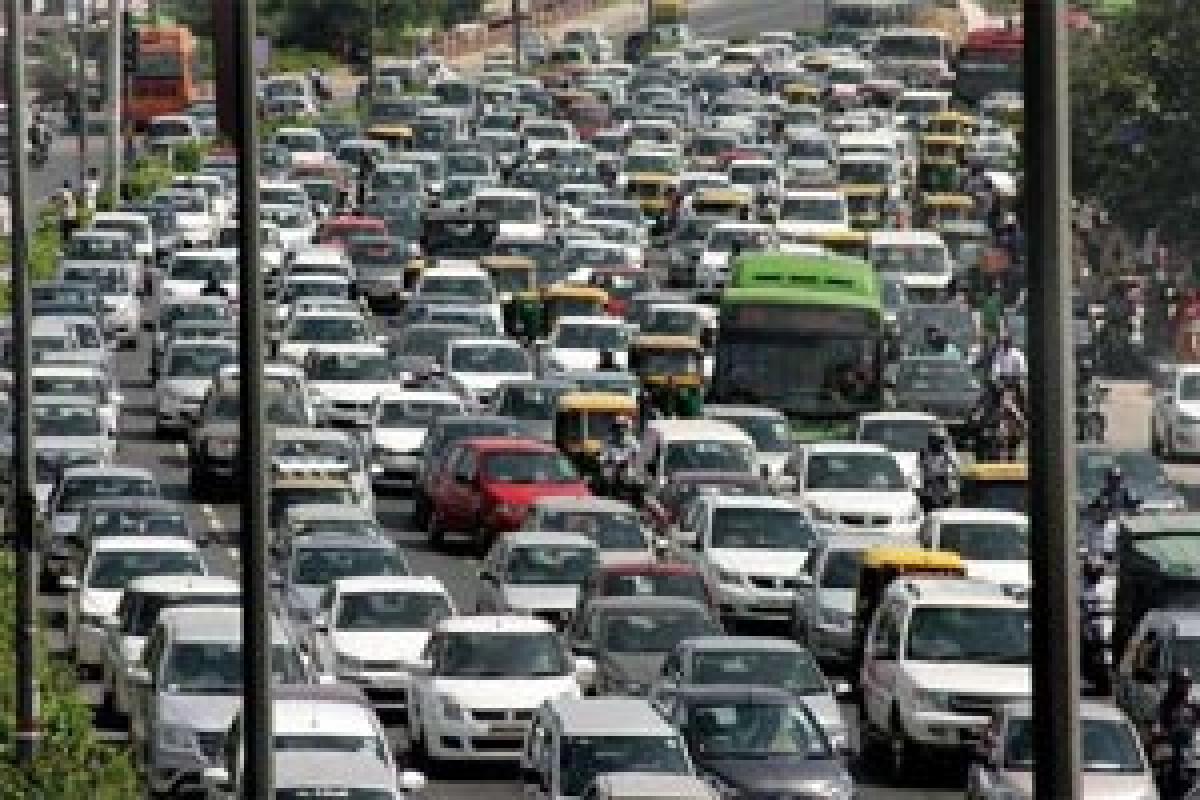Live
- Attack on media: Take action against Mohan Babu, demand journalists
- More sports equipment promised at Central Park
- Mohan Babu’s attack on journalists inhumane act
- West Quay-6 of VPA to get revamped
- Rajaiah demands govt to introduce SC categorisation Bill in Assembly
- Make all arrangements for smooth conduct of Group-2 exams
- CP congratulates chess champs
- Stage set for children’s science exhibition
- ‘Generation Green’ initiative to drive e-waste awareness
- Mysore royal family to get Rs 3,000 crore compensation for Palace Grounds
Just In

Various Sarkari regulators like the National Green Tribunal (NGT) are functioning more with enthusiasm and ignoring the basic tenets of law, and the impact on gradual wealth formation and economic growth.
What you see (smoke) is perhaps better than what you don't see
Various Sarkari regulators like the National Green Tribunal (NGT) are functioning more with enthusiasm and ignoring the basic tenets of law, and the impact on gradual wealth formation and economic growth. Undoubtedly, the NGT’s order to Delhi’s regional transport office (RTO) to de-register 10-year-old vehicles is also unscientific. Whereby, its concern is more populist than practical.
Throwing out over 8,2496 (registered in 2015) diesel vehicles and about 5 lakh petrol vehicles every year, going by the 10-year and 15-year scrapping orders, would not only impoverish the country but also fail to solve the pollution problem. In fact, the numbers would swell to at least 10 crore vehicles a year across the country. True, there is nothing like clean fuel. And all fossil fuels – coal, petrol, diesel, kerosene and compressed natural gas (CNG) – are “unclean”.
Moreover, even electric vehicles’ batteries are polluting. So should we ban any energy-producing substance?
“Natural gas is supposed to be a clean fuel when used in internal combustion engines, right? But, I don't think people realise that what you see (smoke) is perhaps better than what you don't see. No smoke from CNG vehicles,” said Council of Scientific and Industrial Research (CSIR) Director General MO Garg during his address at the Global Green Energy Conclave at Ahmadabad last August.
“Imagine what will be its effect when all the commercial vehicles, such as buses, run on natural gas in Delhi? You can see smoke coming out from diesel engines and tell that it is dangerous. But, nano-carbon particles coming out from vehicles is something we need to look at,” he added for good measure. Not many are aware that CNG-run buses are harmful for humans as they emit “nano-carbon” particles which can cause cancer, according to a study conducted by CSIR along-with an Alberta University professor, who developed a device to measure and analyze particles emitted by vehicles.
Pertinently, in 2010, the Central Pollution Control Board’s (CPCB) source appropriation for air pollution study attributed about 7 per cent of particulate matter pollution from CNG-run vehicles. Of the total pollution, the PM load in the capital, the study said 52 per cent was because of dust. Additionally, CNG vehicles contributed about 10 per cent of the total nitrogen dioxide load in Delhi, the CPCB study underscored. Certainly, CNG does not contribute much to PM 10 (which is widely monitored), but it plays an important role in the circulation of smaller particulate pollution of 2.5 and 1 microns.
Alas, these facts which have come from the highest scientific bodies in India and are known to the scientific community have not been disseminated to people, asserted a senior CPCB scientist. Raising a moot point: Why should not India ban CNG vehicles, if we have to go by the logic of the NGT and courts?
About a month ago, the Civil Aviation Ministry allowed aviation companies to purchase 18-year-old aircraft, instead of 15-year-old, to make air travel easier between smaller cities. Keeping up with US practice where the planes on domestic flights are often as old as 40 years. Questionably, if these do no cause pollution how can a well-maintained vehicle run on any fuel adhering to Euro IV-VI norms cause it? Unfortunately, the NGT has not studied these aspects. Consequently, it owes an explanation to the nation for its unwise decisions.
Clearly, the quixotic ban orders sometimes of petrol vehicles, sometimes of 2000 cc diesel vehicles, at other times of all diesel vehicles or levying of penal registration charges and utopian parking norms are hitting the automobile industry and users hard. The recent NGT and court decisions have caused uncertainty in the car industry. It hurts the transport and taxi industry and makes travel unnecessarily difficult and costlier.
All in all, stringent impractical orders lead to a parallel economy and severe corruption. There is no denying that the NGT’s concern is real but the solution is unreal. Let the nation follow the standards of maintenance of vehicles the world over. As per the Motor Vehicle Act, drafted with utmost care and practicability, vehicles are allowed to have registration even after 15 years, if there are in suitable conditions. Let the NGT set those standards in consultation with the automobile industry.
Importantly, it must learn from the aviation industry where four-decade-old aircraft too are air-worthy. Let no vehicle, unless not maintained properly, be ever scrapped. Therefore, the NGT needs to revise its orders. Thereby, it would not only contribute to the economy but also help in the ease of life and business.
By Shivaji Sarkar

© 2024 Hyderabad Media House Limited/The Hans India. All rights reserved. Powered by hocalwire.com







